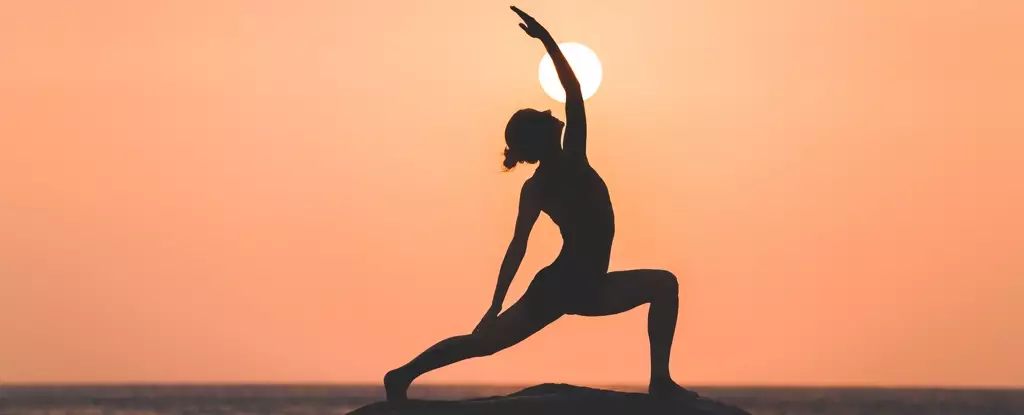Yoga, often revered as a harmonious blend of physical postures, breathing techniques, and meditation, has gained profound recognition for its plethora of health benefits. Yet, amidst this growing adoration, one question looms larger than life: Can yoga be the elusive secret to a lengthy existence? Insights from centenarian Daisy Taylor, who recently celebrated her remarkable 105th birthday in Chelmsford, England, compel a closer examination of this intriguing proposition.
During her recent BBC interview, Taylor attributed her impressive longevity not just to yoga, but to a mindset steeped in optimism and a deep appreciation for life’s minutiae. While her daily routine has adapted to her age—gravitating towards chair yoga from the traditional floor mat—she enthusiastically emphasizes how yoga enriches her mental acuity. Taylor is a member of a unique club, where other celebrated yogis such as B.K.S. Iyengar and Krishna Pattabhi Jois also participated in this ancient practice, living well into their nineties.
Their life stories highlight a pivotal narrative: yoga, seen through the lenses of these exemplary practitioners, is more than an exercise regimen; it is a vital lifeline that bridges physical and mental wellness, steering individuals away from chronic ailments and mental decline.
Research supports the notion that yoga can significantly bolster physical health and potentially mitigate the effects of aging. Numerous studies indicate that yoga effectively reduces hypertension, decreases unhealthy lipid levels in the blood, and may even counteract obesity—all critical factors often linked to mortality. Additionally, the psychological benefits cannot be understated: yoga acts as a formidable ally against anxiety, stress, and depression, freeing practitioners from the mental shackles that often come with aging.
Further studies have revealed an intriguing relationship between yoga practice and cellular aging. A notable study showcased that yoga practitioners exhibited a staggering 43% increase in telomerase activity—an enzyme crucial in curbing cellular aging—compared to a mere 4% in control subjects participating in relaxation exercises alone. Here lies a tantalizing possibility: could yoga naturally hinder the aging of cells? Added to this is the captivating evidence that seasoned yogis can significantly lower their metabolic rates, resembling the hibernation patterns of certain animals—a state known to correlate with an extended lifespan.
The connection between yoga and mental wellness is another layer worth exploring. As individuals age, cognitive decline becomes a prevalent challenge, dampening the ability to form new memories or learn novel concepts. Research indicates that older yoga practitioners appear to maintain a more substantial brain mass, particularly within the hippocampus—the area crucial to memory formation—as opposed to their non-yogi counterparts.
Moreover, a compelling study demonstrated that novices who engaged in meditation for merely four months experienced a significant increase in their hippocampal volume. This suggests that not only is yoga beneficial, but meditation—a core element of yoga practice—could provide immediate cognitive advantages. Such findings imply that ongoing engagement in these practices can foster a “younger” brain age even as physical years accumulate.
The Question of Longevity: Data or Correlation?
Despite compelling trends linking yoga to both health and mental acuity, the elephant in the room remains: Does yoga genuinely extend life? A study utilizing data from the National Health and Nutrition Examination Survey offered striking revelations, revealing participants who practiced yoga faced a reduced risk of mortality. However, a critical factor emerged—participants who engaged in yoga tended to be younger, casting doubt on direct causation.
Once age was factored into the analysis, distinctions in mortality rates dissipated. While yoga promotes overall health and mental fortitude, it may be naive to conclude a straightforward link to longevity without accounting for genetic and environmental factors. This acknowledgment reflects a nuanced truth: Daisy Taylor herself noted that her family boasts impressive longevity as well, indicating that genetics plays a substantial role alongside lifestyle choices.
While the evidence may not definitively support yoga as a singular key to prolonging life, its multifaceted benefits foster a healthier lifestyle—a crucial takeaway for those navigating the golden years. The stories and experiences of centenarians like Daisy Taylor drive home the message that yoga can indeed make old age less daunting.
Emphasizing mental fitness, promoting physical health, and instilling a deeper appreciation for the richness of life, yoga stands as a beacon of hope. As we contemplate our paths toward longevity, perhaps the journey matters just as much as the destination—one where yoga plays a pivotal, transformative role.

